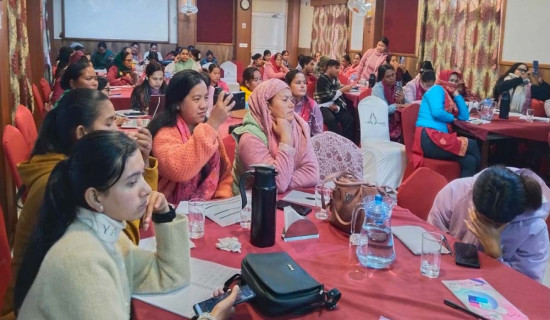- Thursday, 25 December 2025
Boost Agro Cooperation
In an increasingly globalised world, cooperation and collaboration among countries have become a necessity to achieve their interests. And at a time when punitive heat as a result of climate change is threatening to make living in many countries harder and harder and also straining global food security, the importance of such joint efforts has grown in urgency. This need explains why the South Asian Association for Regional Cooperation (SAARC) was formed. In an effort to live up to the commitment of the South Asian regional organisation, a policy round-table meeting on effective implementation of the Material Transfer Agreement (MTA) among SAARC member states with discussions centred on agriculture kicked off in Kathmandu on Wednesday.
In the world of scientific research and development, sharing materials among countries and also organisations is a common practice. However, when such sharing involves proprietary materials or intellectual property, it becomes important to have a legally binding agreement in place to ensure the materials are used only for their intended purpose and that the owner’s rights are protected. This is where a MTA comes in handy. Jointly organised by SAARC Agriculture Centre (SAC) and IRRI South Asia regional Centre (ISARC), the MTA is expected to govern and facilitate the process of transferring seeds, planting materials and other promising biological materials among the states, ensuring that the rights, responsibilities, and potential benefits are clearly defined for both the providers and the recipients of the materials.
The major objectives of the meeting are to sensitise the multiple stake holders including high-level policy makers, researchers and seed/breed producers/distributers for better understanding about MTA process and requirements, to discuss and work towards developing a clear mechanism for effective implementation of the MTA in SAARC region and to work towards harmonising the material transfer policies among the states so as to enable a hassle-free cross-border transfer of genetic materials and to explore opportunities in public-private partnerships in material transfer process.
The meeting holds particular significance as deliberations were focused on various aspects of the implementation of the MTA among the member states including existing policy challenges and future pathways. Speaking at the meeting on the first day, Minister for Agriculture and Livestock Development Ramnath Adhikari said that effective and expeditious implementation of the MTA is key to facilitating cross-border material exchanges, and promote innovation and invention in agricultural science.
This Agreement is said to play a crucial role in ensuring access for the researchers to essential resources and helping them transform their new ideas into useful innovations for communities and nations. As remarked by the Minister, the discussion should be policy-focused to protect intellectual property rights without creating impediments to mutual collaboration, strike a balance between the need of open access to information and the protection of confidential information and prioritising ethical standards in material transfer process.
In a promising sign, the SAARC member states had agreed to establish the SAARC Seed Bank in 2011 to address the pressing challenge of regional food security through a collaborative approach. The goal was to forge pragmatic cooperation among the states to ensure easy accessibility and availability of quality seeds of major food crops in the region. The MTA constitutes an important element of the SAARC Seed Bank. The sad reality, however, is that the idea has so far failed to take off. The meeting should also focus on taking concrete steps to revive the idea. As the issue of agricultural productivity is turning grimmer amid intensifying droughts and heat waves in the region, improved seeds that are resistant to heat and drought and also grows in less water are expected to turn the tide.

















